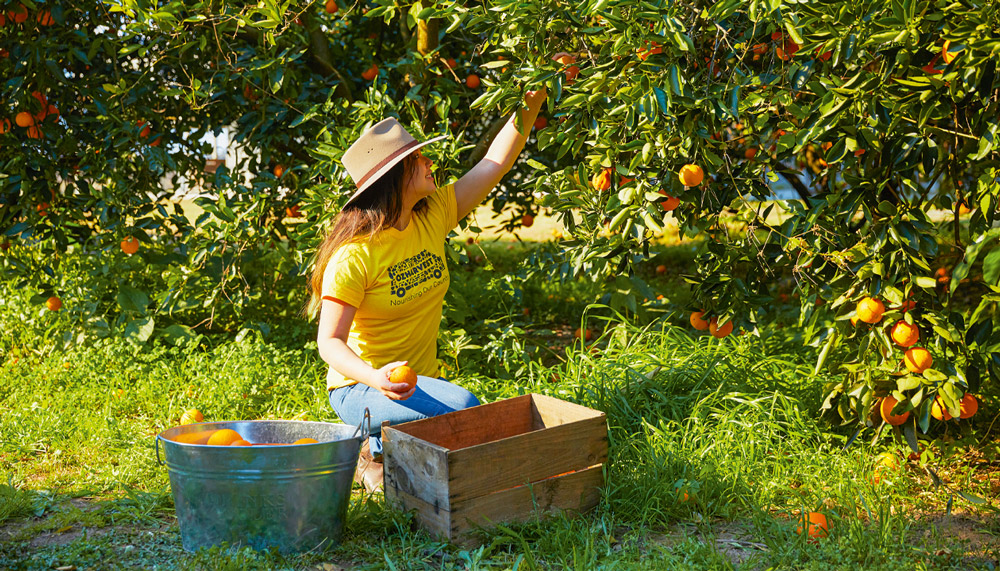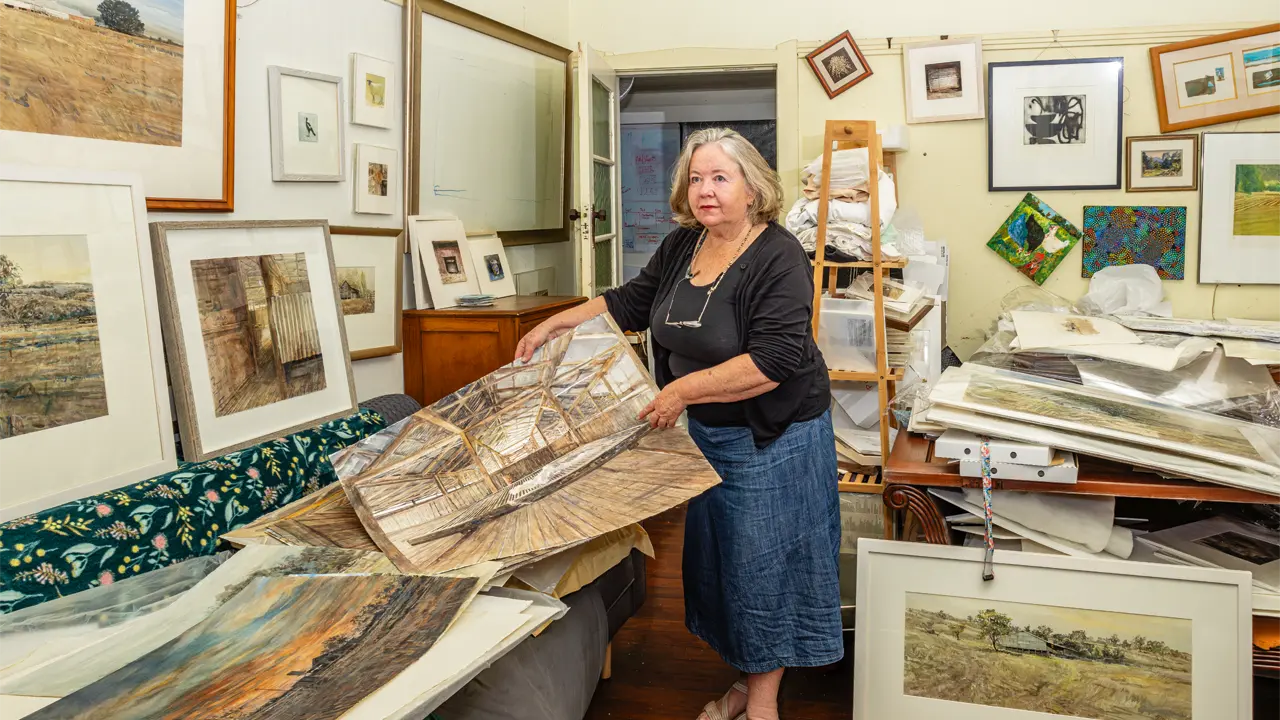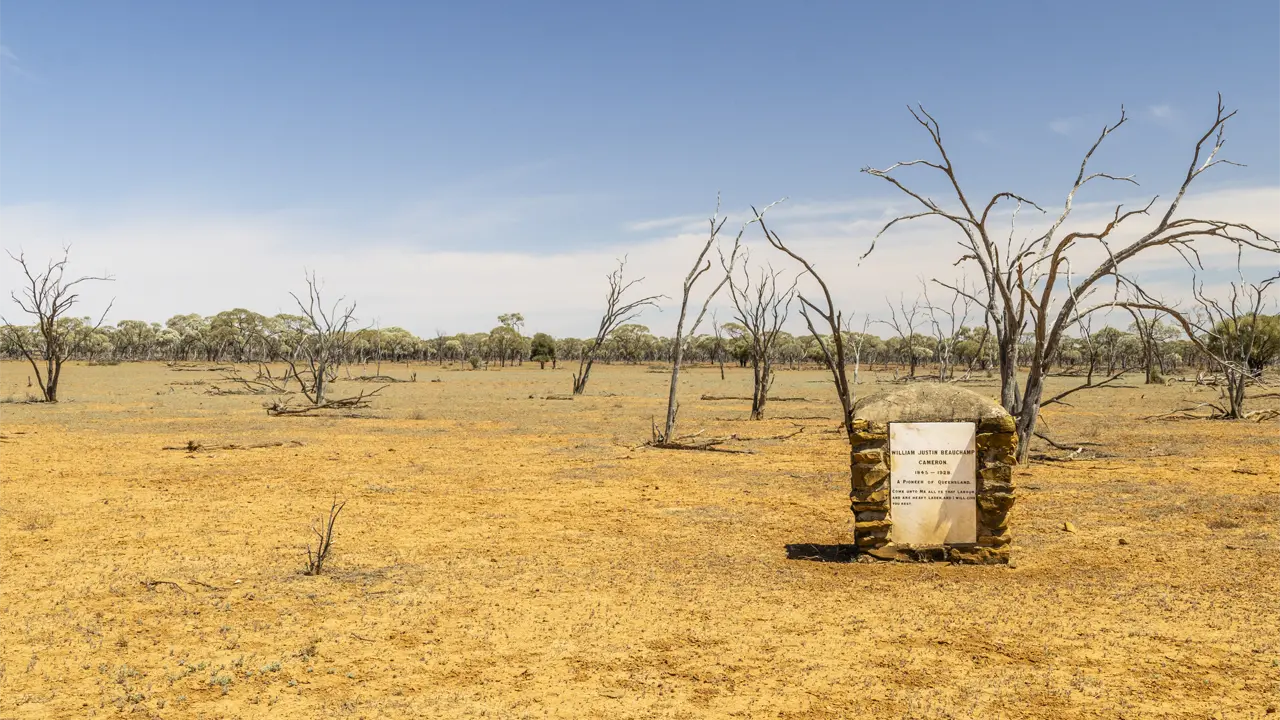Every year, nearly half of all oranges grown in Australia go to waste, but food charity OzHarvest is working with growers to change that.
Story Amanda Burdon Photos Chris Chen
By Riverina standards, Angelo Santangelo’s orange grove at Windsor, NSW, is modest. But the 1500 Washington navel trees, some of them planted by his father 70 years ago, are part of his rich Italian fruit-growing heritage and he takes immense pride in the juicy oranges they produce each year.
So it was a heart-wrenching choice Angelo faced in 2010 – to continue dumping oranges he couldn’t find a viable market for, or bulldoze the historic orchard altogether. “We were sending oranges to the Sydney markets and it was costing us $7 to pick, pack, wash and transport an 18kg box and we were only getting back $4–5 each box,” the 65-year-old says. “We couldn’t give the oranges away, and I seriously thought about ripping all the trees out, but I couldn’t do it; orange-growing was in my blood. My father and grandfather had grown oranges and my great-grandfather in Italy. I had grafted some of the trees myself.”
In the quest for produce perfection and uniformity, the big wholesalers and supermarkets were dictating fruit size and appearance. Anything with a little blemish or imperfection, like black spots, discolouration or signs of wind-rub, was deemed second grade by their standards, even though it didn’t affect the quality of the fruit inside.
“When I was 14 or 15 we would send everything to the markets – blemished fruit, small fruit, large fruit, everything, and it would all be sold,” Angelo says. “But all of a sudden they would only accept the prime produce. No-one can consistently grow fruit or vegetables of a precise size and shape; it’s impossible. Nature’s not like that. We were dumping bins and bins and bins of oranges that the market didn’t want. They might have looked a bit rough, but the taste was still sensational.”
Angered by the wastage, Angelo began investigating alternative uses for his “perfectly good fruit”. That’s when he struck up a relationship with the food salvage charity OzHarvest, and for six years Angelo donated his oranges to them. Each June, teams of volunteer pickers would visit Cornwallis Farm and pick oranges for inclusion in OzHarvest fruit boxes for needy people.
“It made me feel great,” Angelo says. “Everybody works hard for their fruit and I hate wasting it, especially if somebody else can benefit.”
Angelo’s goodwill parlayed into a business proposition last year when the social enterprise arm of OzHarvest – ForPurposeCo – began trialling orange juice vending machines in Sydney. The venture has proven so successful that there are now 50 brightly coloured Juice For Good machines scattered throughout the city and ForPurposeCo has negotiated to buy all Angelo’s oranges this year. “It effectively means that I can continue growing oranges,” he says. “We should both come out of it with a little pocket money.”
Head of marketing for Juice For Good, Louise Tran, says Angelo will supply navels for part of the year and they will rely on a larger Griffith valencia orange-grower for the rest of the year.
This story excerpt is from Issue #129
Outback Magazine: Feb/Mar 2020










